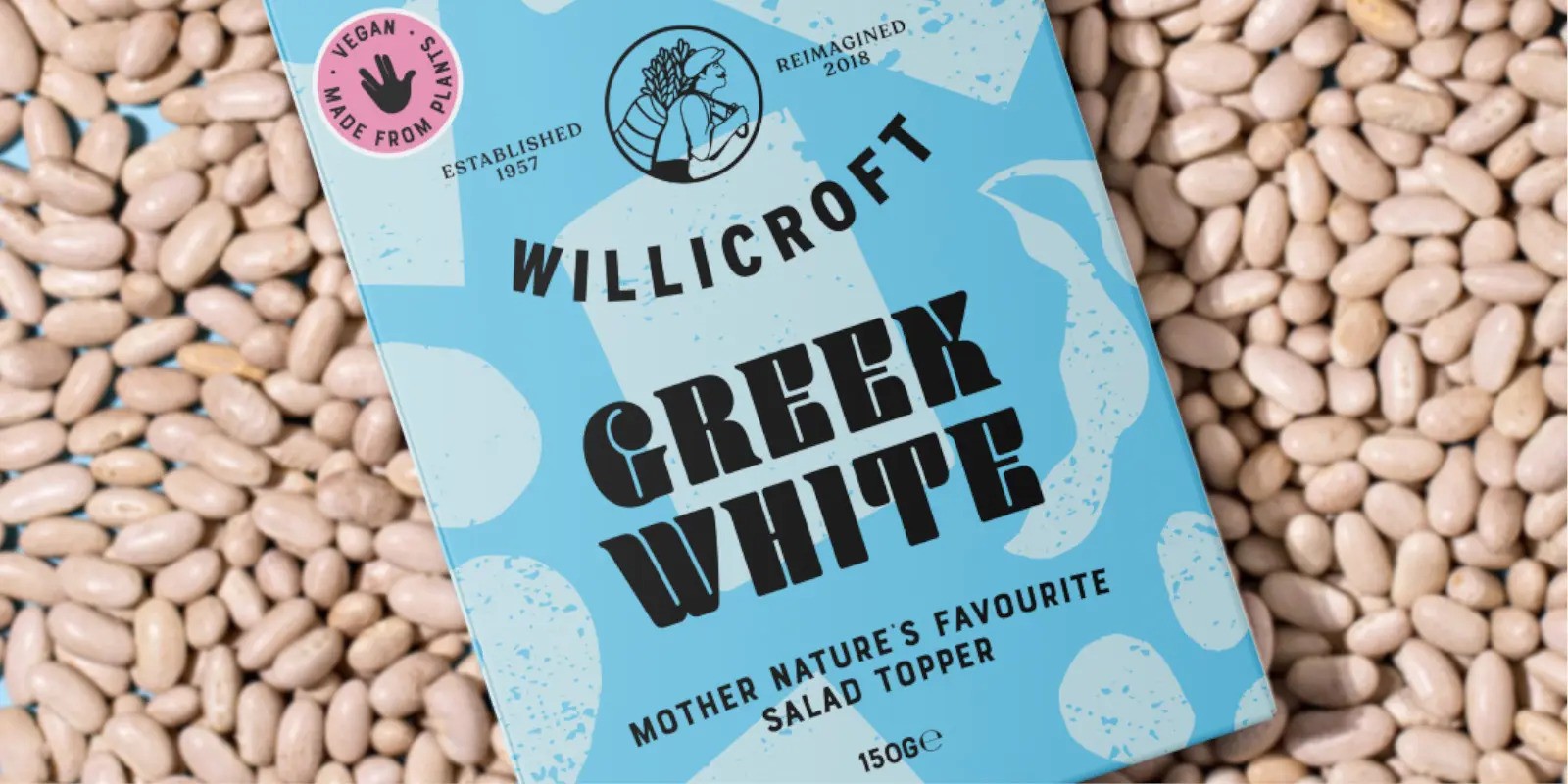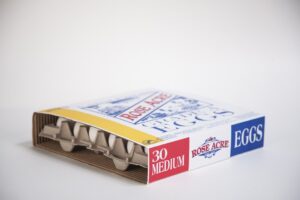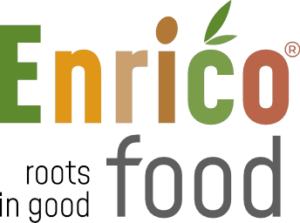In this case study you’ll find:
How user-friendly LCA software Mobius elevated environmental insights by consolidating all data on a single platform – and shook up Willicroft’s assumptions about the environmental impact of their products.
Sustainable product design in practice – replacing an impactful former main ingredient.
Willicroft’s stance on food labeling, carbon taxation, and balancing environmental and social issues in their product development. https://www.youtube.com/embed/dehYg-UB-bk?si=6BNVlb6AZRG_BtlU
Being A Truly Impact-Driven Business Through LCA
Willicroft was founded to satisfy cheesy cravings without the greenhouse gas emissions and animal suffering associated with dairy products. By creating plant-based cheese alternatives, they enable a shift to (more) plant-based diets for cheese lovers.
While some would assume that plant-based products are inherently better for the planet, Willicroft realized that relying solely on this assumption would not suffice to truly claim itself as an impact-driven business. By quantifying their products’ emissions using LCA, Willicroft could start communicating their environmental merits and effectively reduce the environmental impact of their products–based on concrete data, rather than assumptions.
“ Before we started using Ecochain Mobius and started measuring our emissions we could never state to be an impact-driven business. Every action we took before then was merely based on assumptions.”
Generally, Willicroft believes that food emissions need to become visible and advocate for climate-impact labeling on all (food) products. While leading by example, they would also welcome government action here: nutritional scores and shelf life declarations are mandatory on food, so why not labels for environmental and social impact? Food is a huge contributor to climate change, and voluntary business action won’t be enough to fight climate change. Willicroft says: it’s time for transparency-enabled consumer choice and carbon taxation.
Helping Retailers Achieve Sustainability Goals
As a player in the food industry, Willicroft aspires to help major retailers achieve their sustainability goals, too. Cheese is one of the highest-emitting foods per calorie. While cheese makes up a percentage of total sales volume, its percentage of “sold” emissions from food retailers is higher. Cheese alternatives could establish a balance between sales volume and greenhouse gas emissions in the cheese category. By providing quantified impacts of their plant-based alternatives, Willicroft helps retailers make such achievements visible.
Methodology & LCA Process
Willicroft, aided by a coach from our partner Narrate, was recommended to use Ecochain Mobius – a business-user-friendly LCA software. Having an LCA-trained colleague in-house, the software soon turned out to be intuitive enough to use without external LCA expertise. Mobius helped Willicroft access datasets and served as a platform to store and process their data into LCAs.
“Housing all of our impact data in one place and being able to source much of the data from the platform itself has allowed us to make much better decisions.”
Willicroft initially analyzed six products, focusing on climate impacts. They took a cradle-to-grave approach to gain comprehensive data about the product’s total climate impacts.* Customer surveys and extensive research on waste management practices in the markets they operate in provided the basis for End-of-Life (EoL) waste-processing assumptions. Product wastage at the consumer level is also included in their scope, resulting in even more true-to-reality LCA results.
*Due to their mission and limited funds as a small company, focusing on this impact category is reasonable (even though we always recommend obtaining the complete environmental footprint). Our kudos for the Cradle-to-Grave scope (not the easy road for food products!) and tackling those difficult EoL-assumptions like LCA-Jedis!
Comparisons With Dairy-Cheese
Willicroft provides easily understandable LCA insights to customers by comparing their products to dairy products. To make fair comparisons, the LCAs of to-be-compared products must be methodologically consistent. Willicroft obtained suitable LCA data on dairy products from various sources, such as Carboncloud* and LCAs published for dairy products by other plant-based cheese providers. Cross-checking various sources ensured their reliability.
However, obtaining valid LCA data on comparable products remains a challenge. As a result, currently, only three out of five products on their website have comparative labels. Although all of Willicrofts’ products have undergone life cycle assessments, the lack of accessible LCAs for reference products makes it difficult to provide comparative labels for them at this time.
*Carboncloud uses machine learning to estimate likely supply chain data, which means that Willicroft did not need to conduct a complete LCA on dairy cheese.
LCA shows the Main Ingredient as Hotspot
The LCA’s hard lesson for Willicroft was that cashew nuts, the back-then main ingredient in their products, had a significant contribution to the final product’s climate impacts. For example, the Cashew-based Italian age was only 2.5 times less emitting than dairy parmesan. Their products were not as environmentally friendly as initially assumed!
However, sustainability also has a social and geopolitical side. With cashew nuts being a major source of income for vast majorities in the Horn of Africa, they can’t be called “unsustainable”. Unfortunately, social benefits are hard to quantify – the tradeoff between social benefits and climate effects can’t (yet) be measured with LCA. To create the most climate-friendly product possible, the cashew nut didn’t cut, though.
“The goal of our LCA reporting is to accurately and conservatively calculate our emissions, however the goal of R&D and sourcing is of course to reduce emissions as much as possible, it’s an important distinction.”
Achieving Climate and Social Benefits With A New Main Ingredient
Finding out about the high impact of cashew nuts prompted Willicroft to embark on a quest for alternative ingredients. Next to environmental benefits, which ingredient could provide the desired taste, mouthfeel, and nutrition at reasonable costs? After narrowing down over 30 options to about 5, R&D conducted extensive testing, including developing scenarios in Mobius.
Eventually, white beans emerged as the star ingredient for their future products*. Not only are white beans nutritious and tasty but they can also be grown in Europe, reducing transport emissions. Furthermore, they contribute to soil restoration by fixing nitrogen. The LCA results speak for themselves: The white Bean Young Dutch is approximately 7.5 times less emitting than a dairy gouda, and the white bean Greek White is at least 25 times less emitting than a dairy feta. White bean: 1, cashew nut: 0.
*One cashew-based product, the Italian Aged, remains.
An impression of Willicroft’s results in Mobius – showing the contribution of different ingredients to the “Young Dutch’s” global warming impacts.
Willicroft is determined to take its new star even further, beyond the realms of LCA-measurable impacts. By initiating a transition farming program, they hire Dutch dairy farmers to join the dairy transition by growing white beans. A current pilot plantation enables testing different bean varieties. This will be scaled up after finalizing the selection: the aim is to source white beans solely from Wilicroft’s transition farming partners by the end of 2024.
As a B Corp, Willicroft is leading the way toward climate-proof, socially progressive business practices. Willicroft ensures that farmers are paid based on average yield over the years, considering the potentially unpredictable effect of climate change on future yields.
Plan(t)s For The Future
Moving forward, Willicroft plans to incorporate the water and land-use change impact categories into their LCAs. These impact categories are important for food-LCAs, and initial analyses suggest that their upcoming plant- and precise fermentation-based butter will have significantly lower water impacts than dairy butter. Leveraging the product-system models established in Mobius, Willicroft is well-positioned to integrate these impact categories into its assessment process.
Willicrofts’ upcoming sustainability report will grant us deeper insights into their ongoing sustainability initiatives, and ensure the transparency of their LCAs.
Bottom Line
When Willicroft embarked on their LCA journey, they stopped relying on assumptions such as “plant-based equates to environmental friendliness”. They became a truly impact-driven business by quantifying their products’ environmental merit, using Ecochain Mobius. Their LCA process involved collaborating with a consultant to guide and develop their in-house capacity and they incorporated diverse data sources alongside the Ecochain software.
Upon obtaining LCA results, Willicroft targeted their main impact hotspot by replacing cashew nuts with white beans as the recipe basis of most products. They now embrace local ingredient sourcing and socially progressive farming practices. Through these actions, Willicroft is at the forefront of adopting a climate-friendly and socially progressive business approach.
Willicroft sees LCA as a guide, rather than as a source of absolute numbers, to enable better decision-making and more sustainable consumer choices. They call on companies and society as a whole to measure climate impacts and take data-based climate action.




